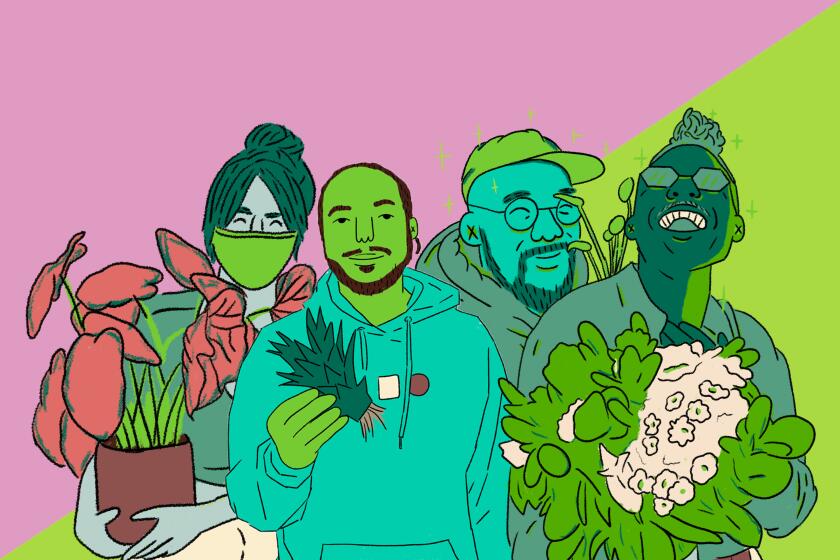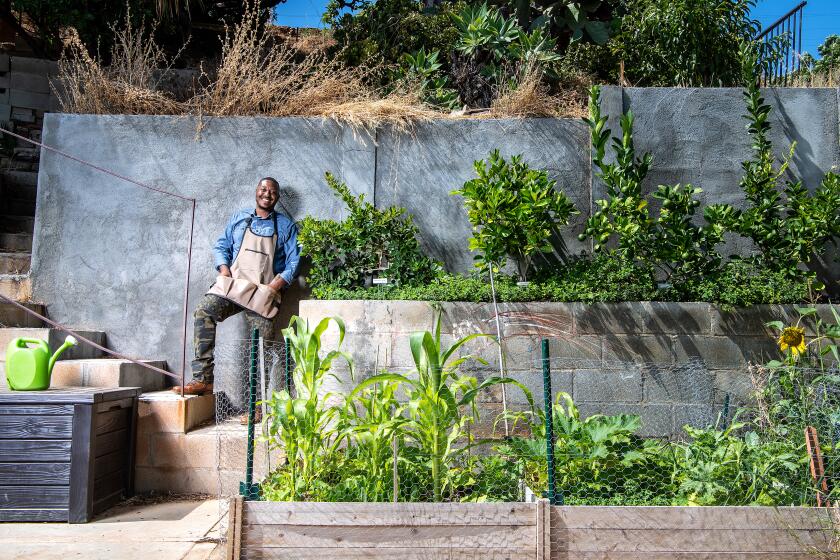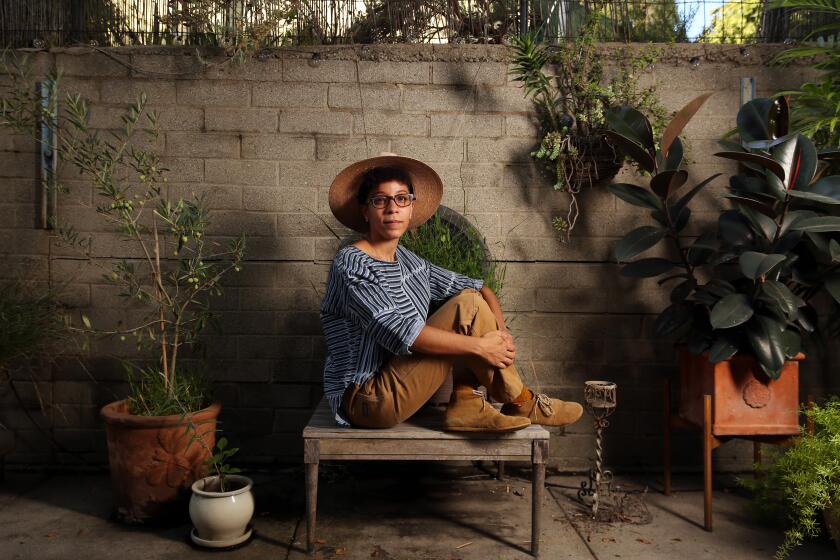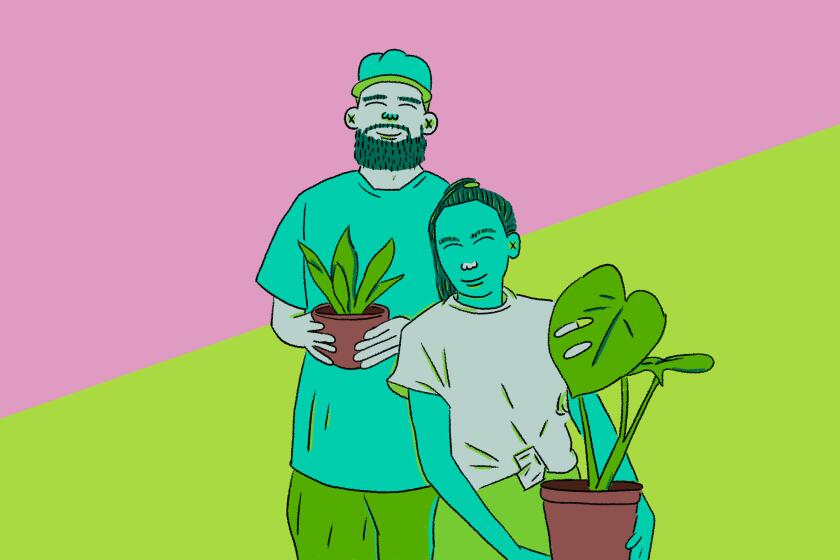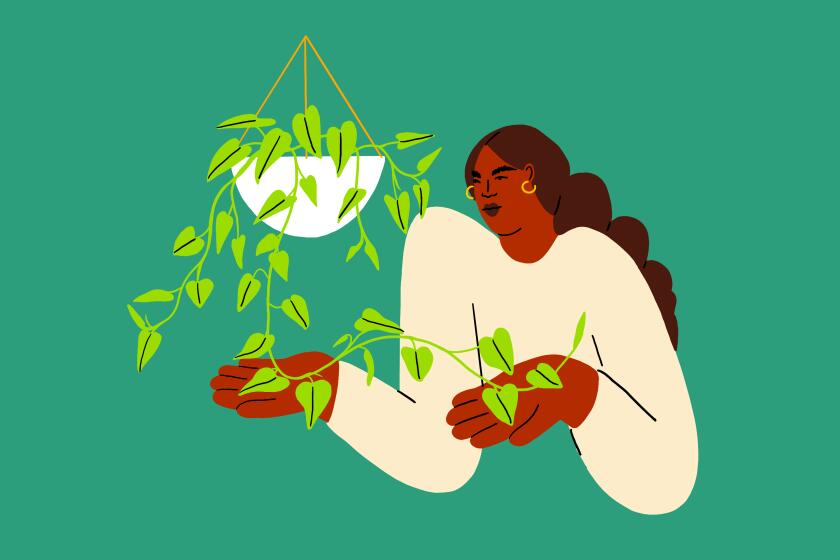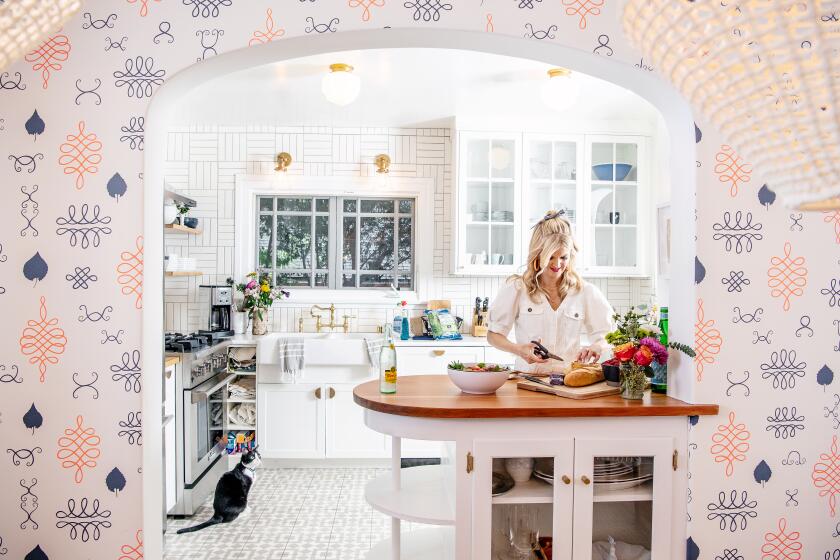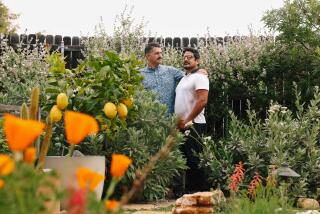Once on a no-shop list, this plant shop owner put down roots in Highland Park
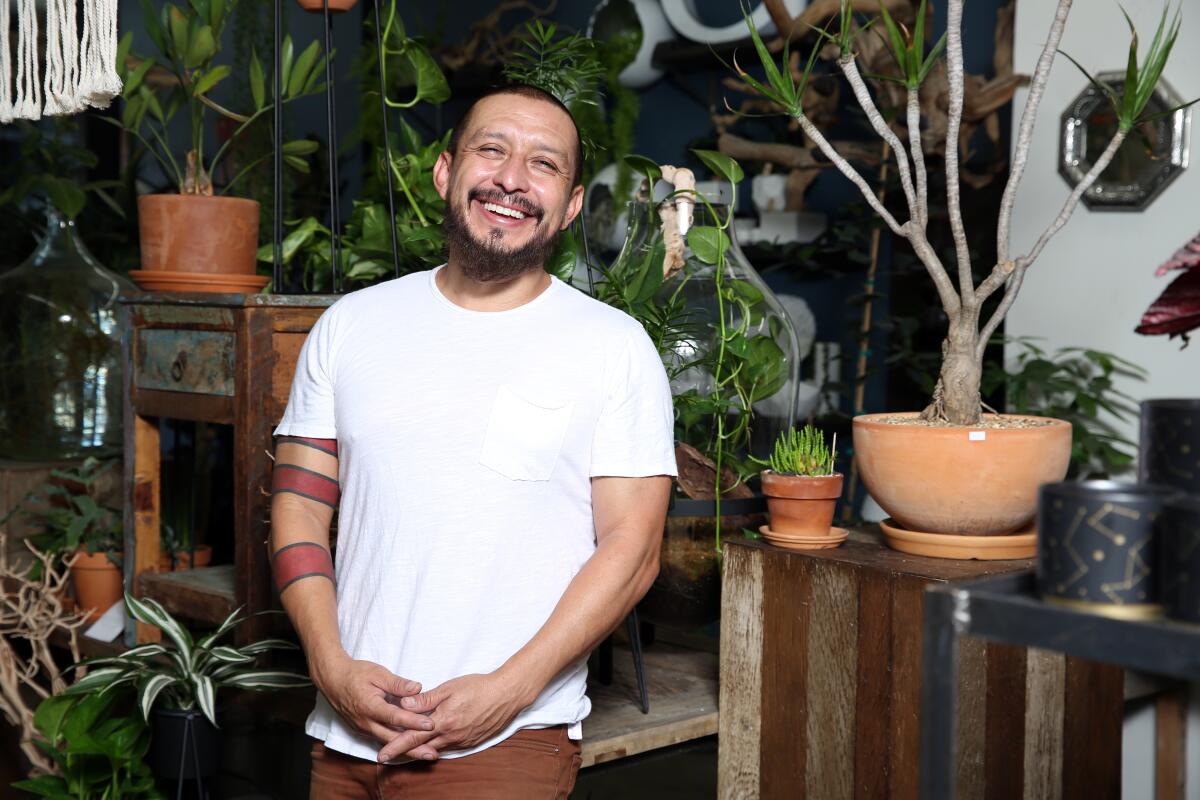
- Share via
This is the latest in a series we call Plant PPL, where we interview people of color in the plant world. If you have any suggestions for PPL to include in our series, tag us on Instagram @latimesplants.
As a boy growing up in Texas, Felix Navarro spent his days working alongside his mother and grandmother in his family’s garden.
“While my brothers and sisters were playing with their toys, I was the gay kid who would follow my mom around the garden and learn about plants,” Navarro recalled with a laugh. “It’s been a part of my life forever.”
In our Plant PPL series, we interview people of color in the plant world, including plantfluencers, plant stylists, floral artists, enthusiasts, experts and garden store owners.
Navarro said his family was poor and he remembers when organizations would leave clothes and food at their door at Christmastime. That has stayed with him while he has navigated his career and his place in the community. “People come in and ask me to donate to schools,” he said. “I give to anything that is kid-based because those organizations allowed me to get to where I am today.”
After working in corporate finance, Navarro found his niche and opened the Juicy Leaf in Venice in 2009, a plant shop specializing in low-water sculptural succulent container gardens that are eco-friendly and ideal for apartment dwellers.
His East L.A. backyard is mostly concrete, but Ken Sparks has transformed the hardscape into something alive, with chickens, a butterfly garden and organic vegetables.
When he was forced to relocate to Highland Park four years ago after rents skyrocketed on Abbot Kinney Boulevard, however, the 46-year-old was surprised to be met with resistance from anti-gentrification protesters in the predominantly Latino neighborhood.
“There were nights when people banged on my windows,” Navarro said. “I was put on a no-shop list. I went outside and tried to talk to them. I told them ‘I’m the owner, I’m Mexican!’ and they stopped. I was gentrified out of my old neighborhood in Venice. I honestly thought I’d be embraced here. People told me, ‘We love that you’re Mexican, but your prices are too high.’ I come from nothing. I didn’t speak English until I went to kindergarten. Anyone can shop in my store. I can’t tell you how many times I’ve taken someone to the dollar store and made something for them. Now that I’ve been here for four years, there is a lot more camaraderie.”
Tell us about your career trajectory.
During college I worked full time managing a convenience store and attended school full time. During summer breaks I worked as a cowboy. I did ranch-hand work: building fences, plowing land for growing crops and working cattle. I graduated from college on a Saturday and started my very first job two days later in the financial industry as a credit manager.
Jamie Renee Williams turned a tiny strip of dirt outside her apartment into an edible garden. You can tour it online during the LA Design Festival.
I did that until I was 33 and the financial industry collapsed. I started the Juicy Leaf in my garage, then did flea markets for about two years. I learned the product and how to sell it. Initially, I would go and hide in the truck because I was so mortified to talk to people. It was hard for me to sell something that I had made. I was timid and shy, but after two years I learned what worked.
So you opened a boutique on Abbot Kinney?
At the time we opened, we subleased a 750-square-foot space for $3,000 a month. I hustled and we made it happen. When I left, it was $15,000 a month. It was a lot of money.
Plant Man P is an online store, YouTube channel and popular Instagram account with over 14,000 followers.
Why did you move to Highland Park?
Because it was the cheapest location I could find in the whole city of L.A. when it came to renting.
What do you like about having a bricks-and-mortar store?
It gives people the opportunity to come in and, even if they don’t buy anything, they may touch base with us months later. After 15 years, we have a steady group of clients who know about us. As a growing company, it is great to connect with your customers that way and be a part of the community.
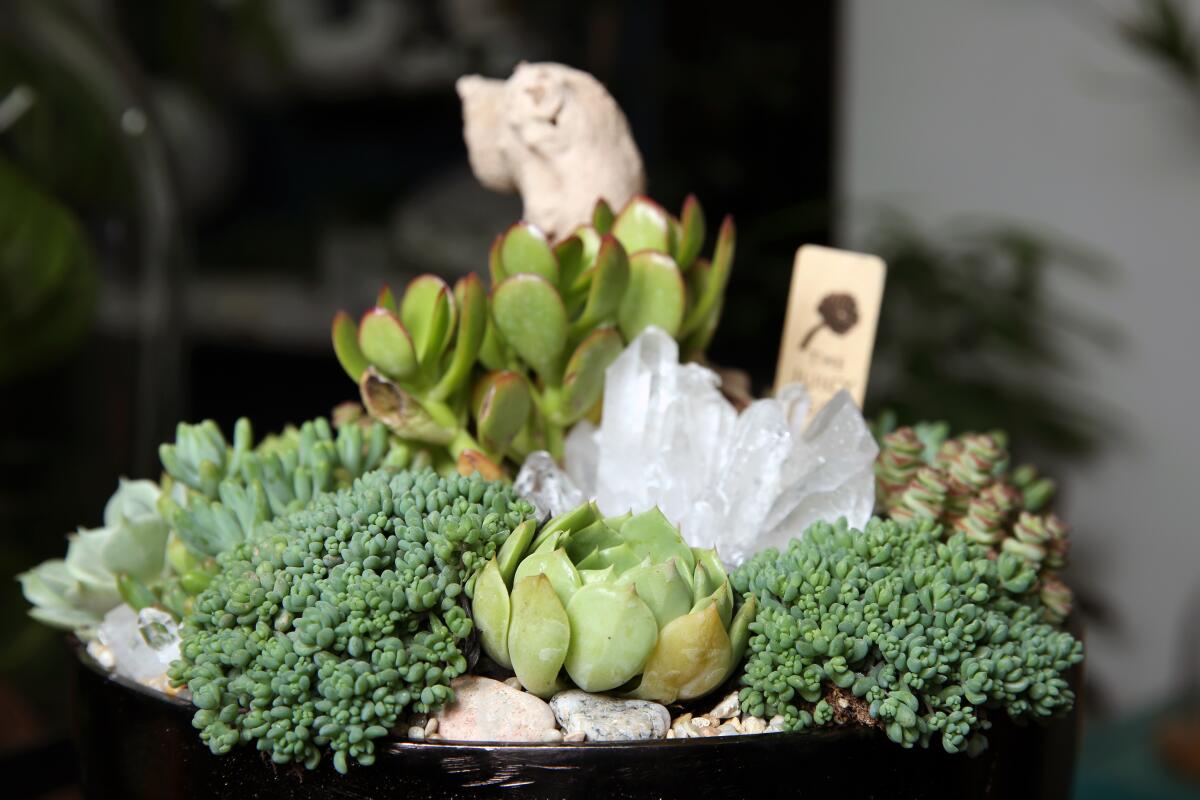
What makes the Juicy Leaf unique?
We definitely have a look. When I first started it was pure succulents, cacti and unique plants. We had to evolve over the years. I think the core is still there, but we have had to grow to include more houseplants, more art and home decor. A lot of my clients want more than just plants. They want art and furniture recommendations.
A lot of times, people are not very educated about what they are selling and their plants aren’t healthy. We know what the plant is supposed to look like and that is one of the main things that sets us apart. Be sure to ask if you are buying poisonous plants. Euphorbia, for example, is dangerous to kids and pets. It’s important that people ask questions and are informed.
Want to turn your living room into a jungle? These hanging plants are a good place to start.
How has COVID-19 affected your business?
We are doing a little less business, but it’s not that bad. The day that we got the order from the governor, I thought “What am I going to do?” I watered the plants and cleaned the store. I was teary-eyed and thought, “I’m going to lose my company.” I put up my signs and opened up my register and thought “We have yet to have a zero day.” But we didn’t give up. We offered virtual workshops on Instagram. Curbside pickup. Appointments. People are nervous and timid but are looking for something to do.
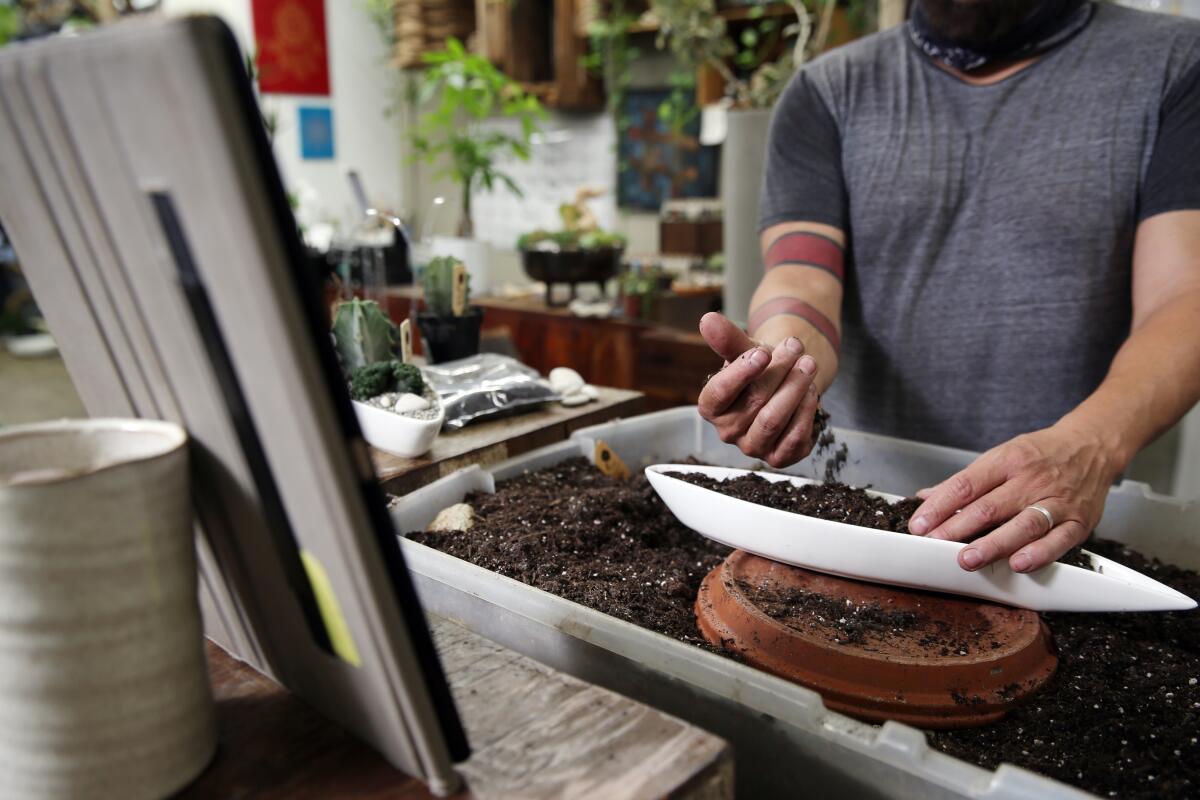
What are some common mistakes that plant parents make?
Watering. When people say that succulents are from the desert and should only be watered once a month, that is not accurate at all. The minute you put them in a pot they are at your mercy. Another mistake is when people put air plants in the bathroom and think that’s good for them. Steam does not help. It would be like squirting someone in the desert. People often water their plants in plastic grower pots, especially pothos and philodendron. Place anything that is in a grower pot on a dish so that when you water it, the plants can reabsorb the water like a sponge, and the middle part of the root ball can get moisture. If you took a plant out of the grower pot and broke it in half, you would be surprised to see the root is still dry. People are losing their plants because of the way they are watering them.
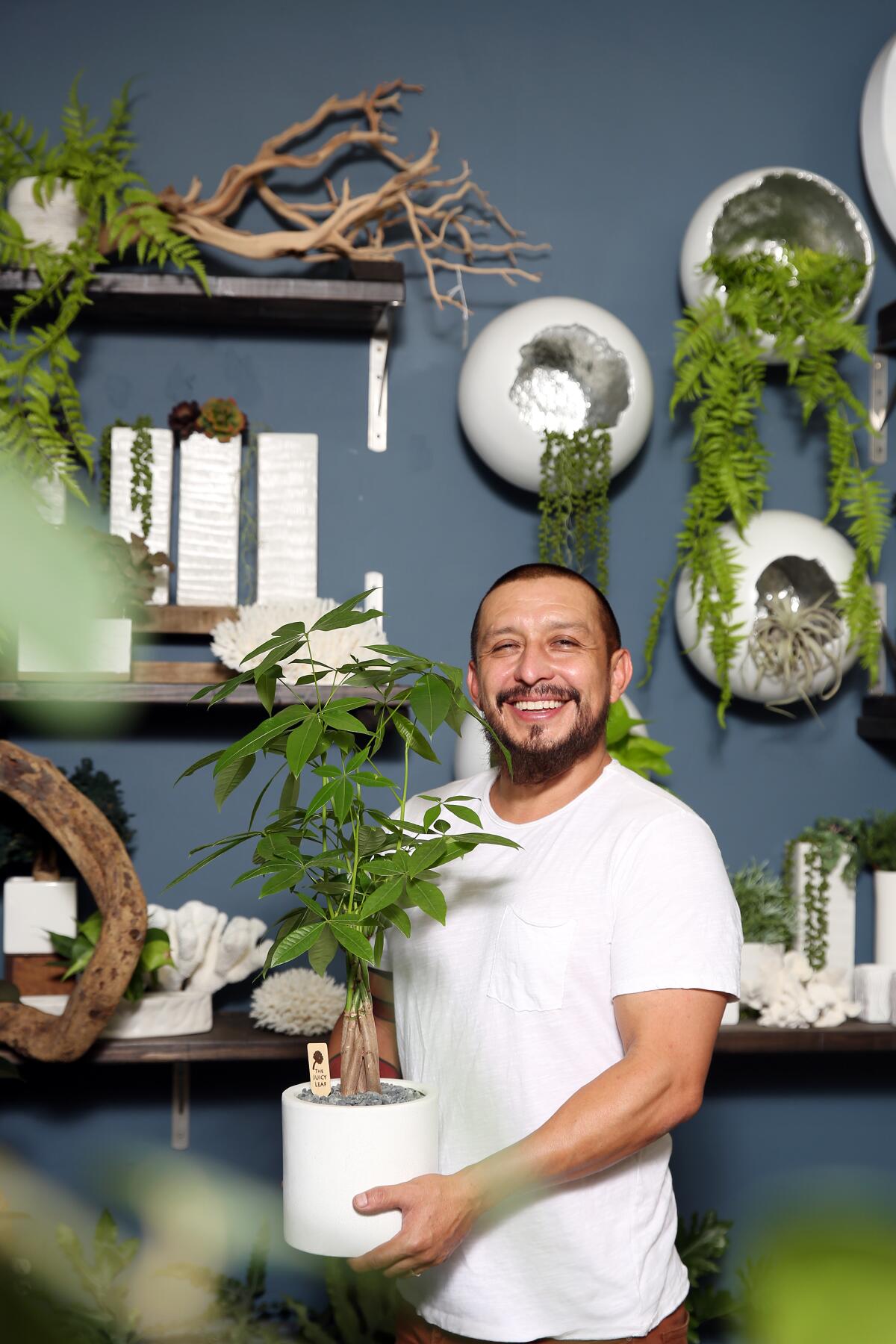
Favorite plant?
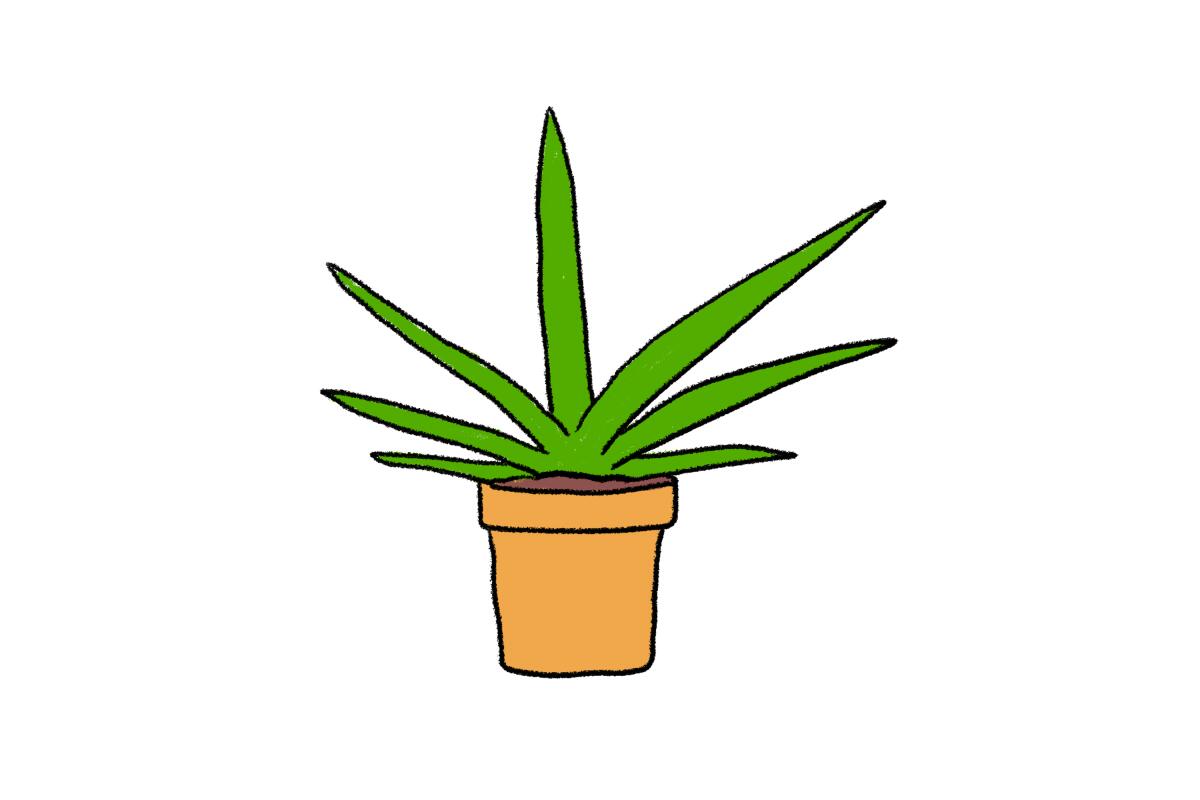
I really like the sansevieria species. It is an amazing variety because it is so adaptable. If I had to choose one, I would say Sansevieria cylindrica, which comes from Thailand and grows like weeds near the river. They are fan-like. It is a basic plant. It’s easy to take care of and it thrives on neglect. It cleans the air better than others. It’s cool for all of those reasons.
Arden Myrin’s ‘cheap and cheerful’ tiny bungalow will cure your COVID-19 blues.
What advice would you give others who want to start a small business?
Don’t give up. It’s a lot to keep up with. If it’s your passion, it will come together. And you will be able to make a living. It’s just a lot of blood, sweat and tears.
More to Read
Sign up for The Wild
We’ll help you find the best places to hike, bike and run, as well as the perfect silent spots for meditation and yoga.
You may occasionally receive promotional content from the Los Angeles Times.
